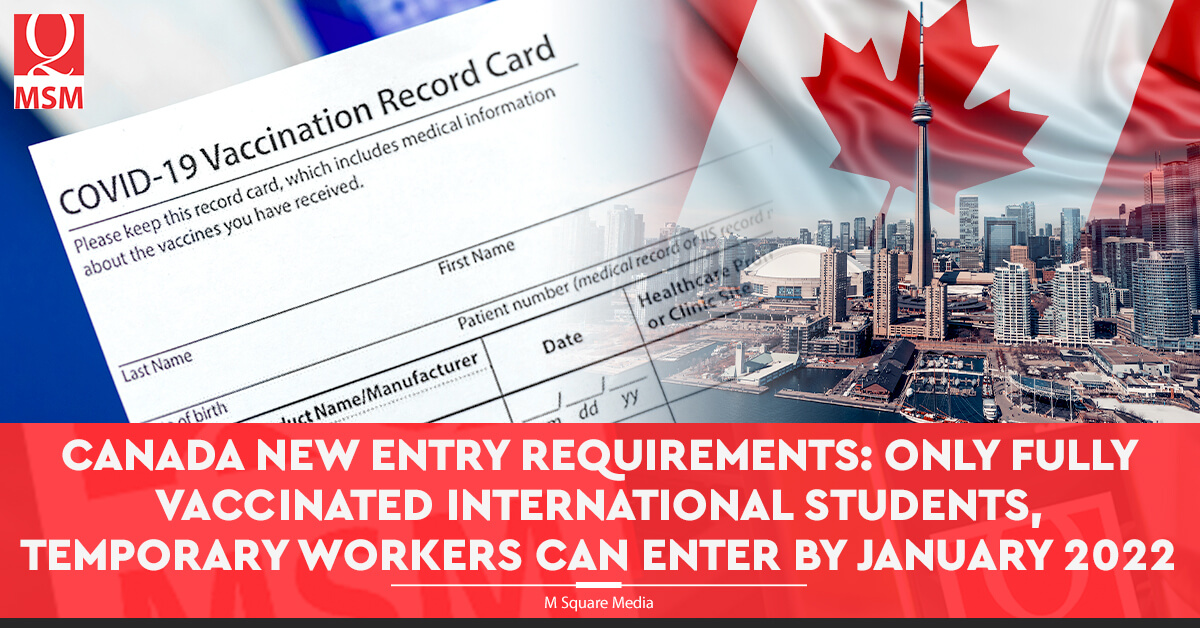In order to enter Canada, international students, temporary foreign workers, and other exempt travellers will soon need to be completely vaccinated.
Canada has announced a number of new border measures that will take into effect at the end of the month. According to a government press release, beginning November 30, Canada will expand the list of COVID-19 vaccines that travelers can obtain to be considered fully vaccinated.
Sinopharm, Sinovac, and COVAXIN will be added to the list of recognized manufacturers, which already includes Pfizer, Moderna, AstraZeneca, and Johnson & Johnson.
Beginning January 15, 2022, certain exempt travellers will only be allowed to enter the country if they have had a complete vaccination with one of the approved vaccinations. These groups include:
Canadians’ family members, permanent residents, and those who are registered under the Indian Act;
foreign students who are at least 18 years old;
athletes;
those with work permits, with the exception of those in agriculture and food processing; and
vital service providers, such as truck drivers
Unvaccinated individuals or those partially vaccinated will only be able to travel to Canada if they meet an exemption after the new regulations take effect. Those who have not been vaccinated and do not qualify for an exemption will be denied entry to Canada.
What Do These Changes Mean For International Students?
The new Canada border restrictions will allow more international students to enter Canada as long as they are fully vaccinated. Also, the dilemma on unrecognized vaccine brands has also been resolved as Canada will soon honor the vaccines made by China and India – the countries where the majority of the world’s international students hail from.




